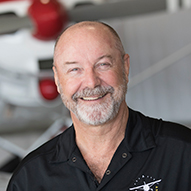It’s rare that a business throws open its doors to commit commerce while harboring a plan to do something other than be honest, open, and accurate with their customers. Yet the slippery slope of self-preservation twists and turns our attention from the goal of providing superior customer service to the perfectly natural distraction of conducting business in a self-protective manner.
None of us wants to be wrong. We don’t want to be proven wrong to our employers or employees, either. That risk of professional embarrassment can cause us to do things and say things that we may well regret later—even if we had the best of intentions. Fortunately, there is a simple solution. Commit yourself and your staff not only to saying you will be honest, open, and accurate when working with customers—commit yourself and your staff to actually doing it.
Flight schools run the risk of being perceived to be dishonest or inaccurate far more easily than the average retailer or service provider. That is largely because of the significant potential for misunderstandings we have with each new student.
The average man or woman who walks through your door knows nothing of FAR Part 61 or 91. The customer does not know what a practical test standard is. Many have no real understanding of the difference between a curriculum and a syllabus. And few truly understand that flight training is measured by proficiency, not by simply totaling up the hours in a logbook.
The upshot of this is the student may think you guaranteed a price to receive a private pilot certificate, without recognizing the difference between your estimate of the price, and their ability to perform the required task in the theoretical number of hours quoted. That customer may find himself running short of funds near the end of his training and blaming your business for the blunder, when it was in reality a simple misunderstanding. A misunderstanding that might have been clarified with a slightly longer conversation on that first day when the student inquired about learning to fly.
As flight school professionals we have to keep in mind that our students and customers do not necessarily speak the same language we do. That reality suggests we would do well to slow down, speak openly to our new potential customers, and make sure their perception of what we’re telling them is an accurate version of what we are actually saying.
If you don’t know an answer, be honest about that fact. Commit to finding the answer and getting back to the customer. Better yet, show your customers which resources you would use to find the answer, and let them walk through the process with you. The end result is a customer who not only got an accurate answer to their question, but also received a brief tutorial on how to find his or her own answers in the future. Service on that level builds trust and confidence, both of which can lead to a lot fewer problems borne of misunderstandings for a flight school business.



